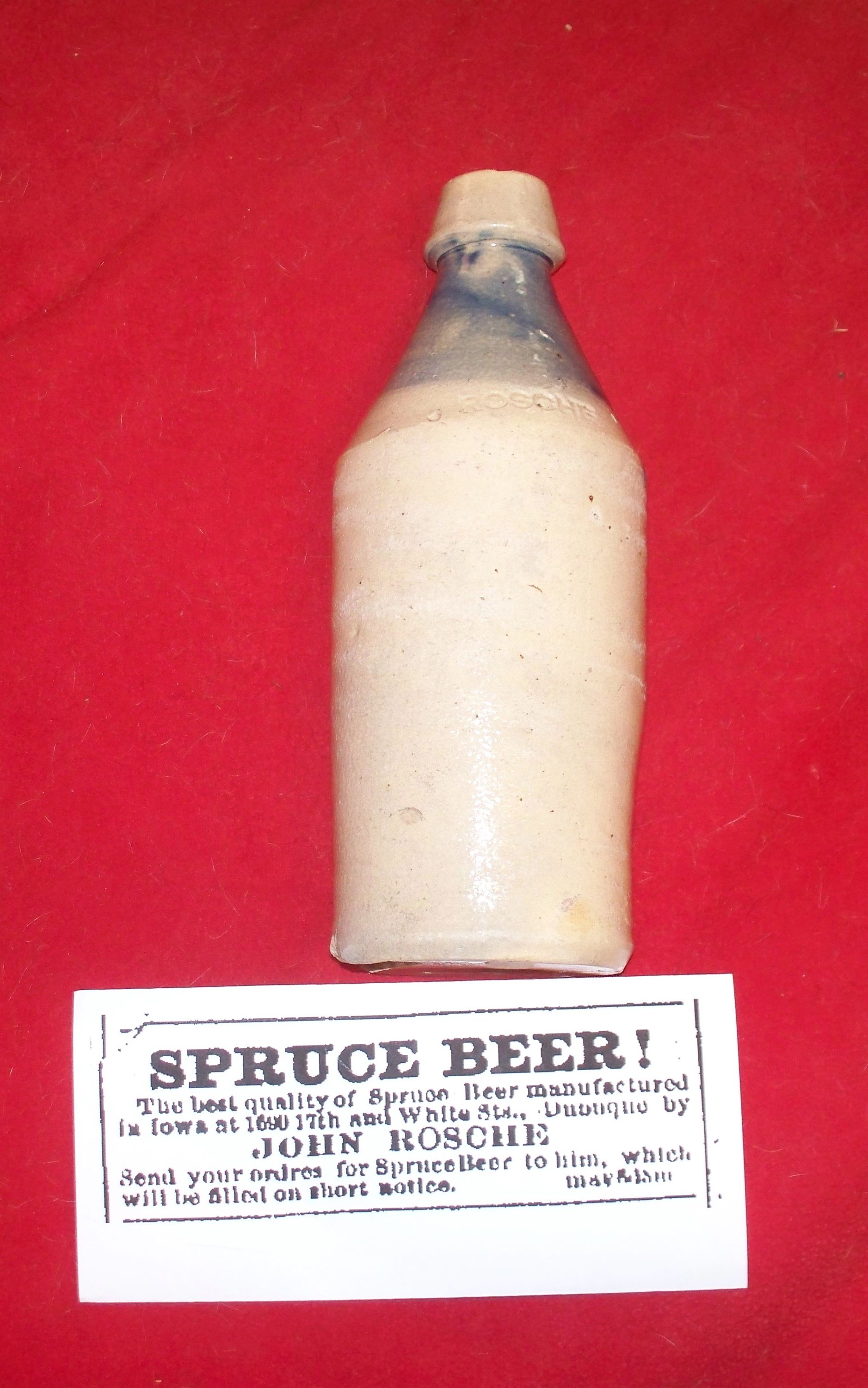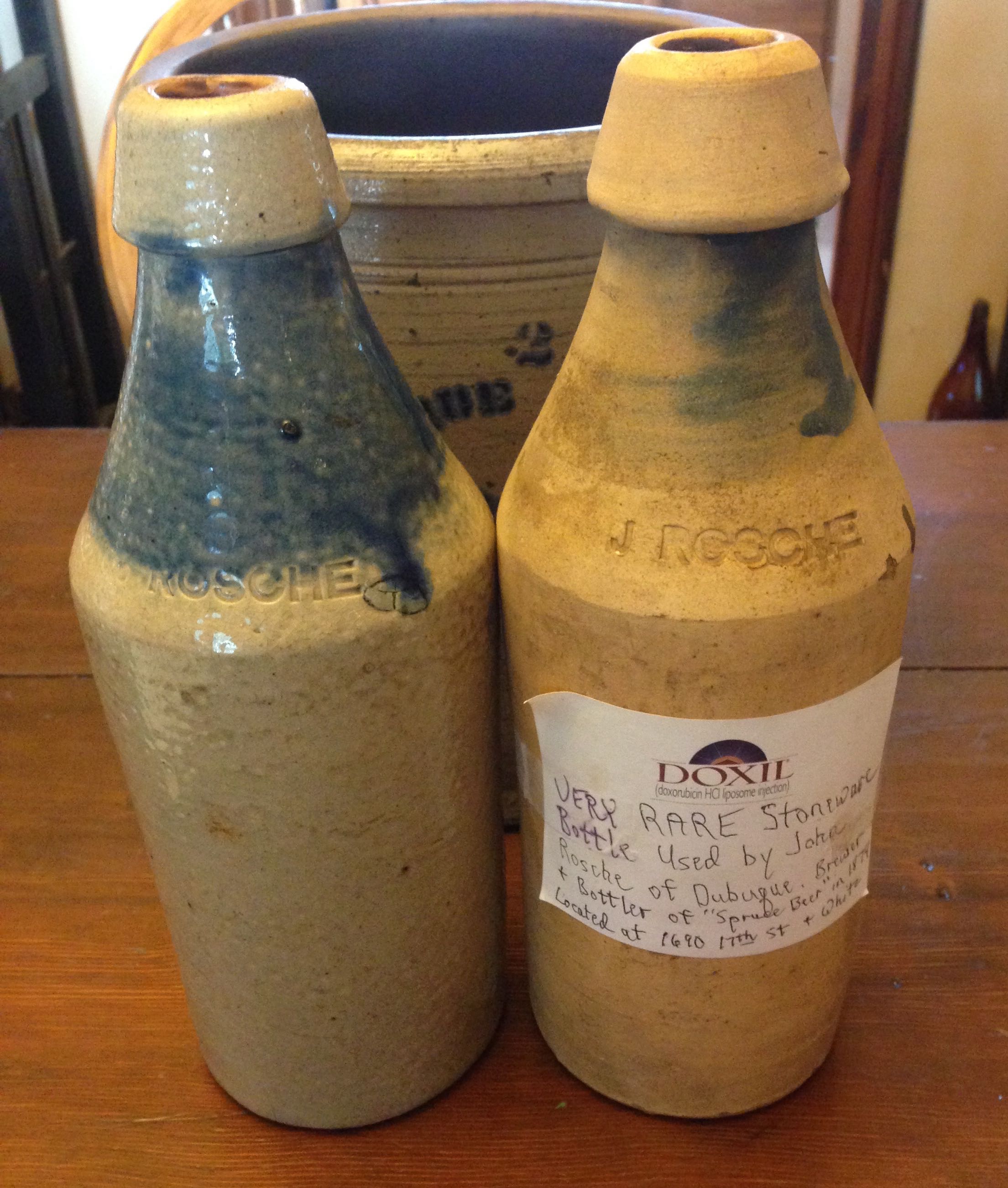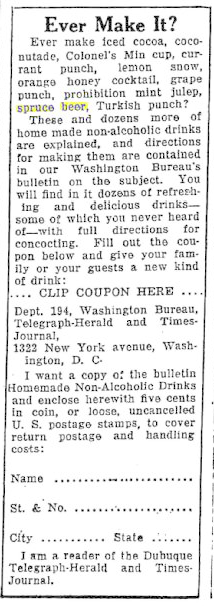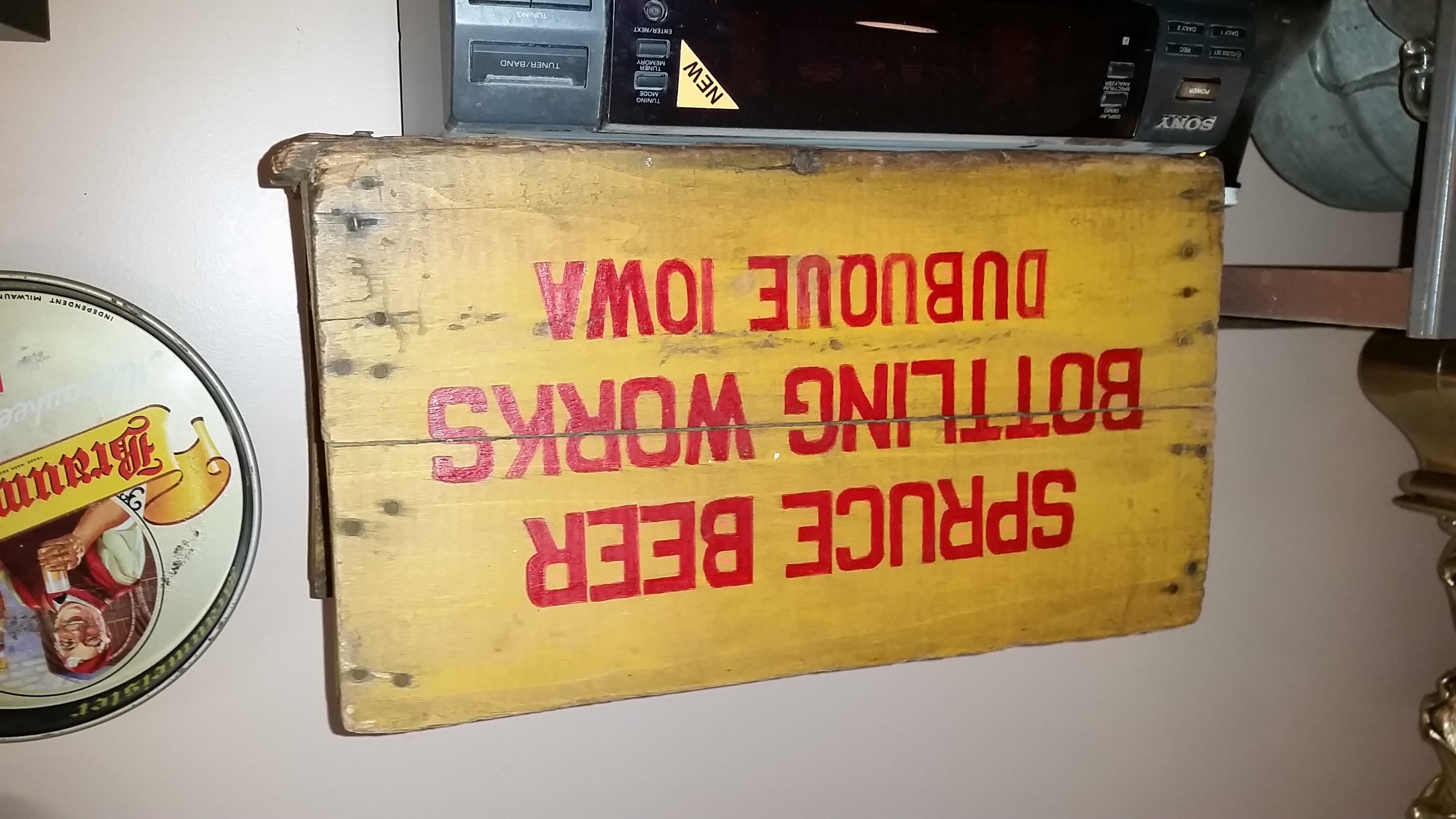Encyclopedia Dubuque
"Encyclopedia Dubuque is the online authority for all things Dubuque, written by the people who know the city best.”
Marshall Cohen—researcher and producer, CNN
Affiliated with the Local History Network of the State Historical Society of Iowa, and the Iowa Museum Association.
SPRUCE BEER
SPRUCE BEER. Spruce beer, a beverage flavored with the buds, needles, or essence of spruce trees, can refer to either alcoholic or non-alcoholic beverages. Flavors range from floral, citrus, fruity, resinous and piney. It is believed this is due to the choice of spruce species, the season in which the needles are harvested, and the manner of preparation.
It was known in colonial America according to Corun Hirsch who reported on the drinking habits of that time in his book Forgotten Drinks of Colonial New England--From Flips and Rattle-Skulls to Switchel and Spruce Beer. (1) George Washington's troops at Valley Forge were issued a baked potato and a quart bottle of spruce beer. (2) Those intending to sell intoxicating liquors on the State Fair grounds in 1863 had to have a government license or pay a fine. "A person can sell rain water, river water, cistern water, spruce beer, lemonade, pop and such like mild things without a license. (3) In 1932 the Telegraph-Herald and Times-Journal offered the directions for making the drink along with others. Reading were asked to clip a coupon from the paper and send it to Dept. 194, Washington Bureau, 1322 New York Avenue, Washington, D.C. (4)
The only known company producing the beverage in Dubuque was operated by John Rosche around 1874-1875. His "spruce beer apparatus" was advertised for sale in April, 1880. (5)
---
Source:
1. Locke, Michelle, "A Colonial Style Cheers to the 4th," Telegraph Herald, June 25, 2014, p. 19
2. "Plaster and Wax Tell Appetizing Tale of War," Telegraph-Herald, September 23, 1928, p. 20
3. "U. S. License," Dubuque Herald, September 11, 1863, p. 4
4. "Ever Make It?" Telegraph-Herald and Times Journal, August 21, 1932, p. 9
5. "Property Sales," The Daily Herald, April 13, 1880, p. 2





